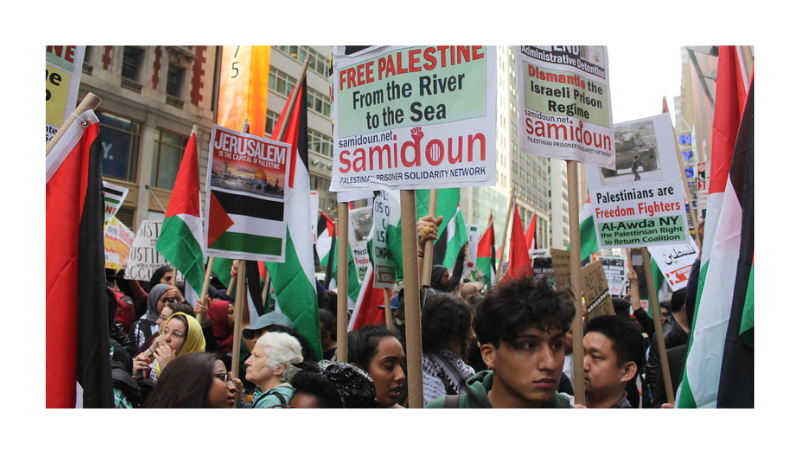Christine Rosen
Commentary, June 2024
“There’s not a kind of anti-Semitism detector that’s just going to ding and tell you, yes, this is anti-Semitic, therefore, it’s out of bounds. Or no, it’s not, therefore, it’s OK. All of these things are in the eye of the beholder.”
After months of anti-Israel protests on college campuses across the United States—some of which ended in law-enforcement interventions, destruction of property, arrests, and canceled commencements—mainstream media are still confused, or misguided, or worse, when it comes to covering the story.
Two approaches have emerged, both illustrative of broader failings in the profession. The first embraces and romanticizes the protests as part of a long and admirable trend of student activism, often tapping into highly selective memories of 1960s-era youth culture. The second approach also views the protests as positive, in a way that allows journalists to ignore and minimize the violent and anti-Semitic words and deeds of many of those in encampments and on quads. Just as many journalists offered a falsified portrait of the George Floyd Summer protests of 2020—as captured by the infamous CNN chyron, “Fiery but mostly peaceful,” that ran live under images of protesters setting fire to buildings—the tone of many reports this spring might be described as “Genocidal, but mostly peaceful.”
American journalists learned over the past decade to redefine violence as speech (“mostly peaceful” arson) and speech as violence (Tom Cotton’s “unsafe” op-ed about calling in the National Guard). Now acceptable protest has been expanded to include . . . just about anything, including the occupation of buildings and destruction of property. “People understand that ‘occupying buildings on campus’ is, like, one of the most common forms of student protest for decades and not some devious new ploy devised by professional anarchist plotters, right?” said Chris Hayes of MSNBC. He went on to argue, bizarrely, that “college activism has long been part of a college education,” as if trespassing and barricading and holding janitors hostage is akin to Freshman Comp.
The Washington Post also made a serious effort to downplay the radicalism of the protesters by portraying them as victims of a right-wing vendetta. “They Criticized Israel. This Twitter Account Upended Their Lives,” read a typical headline. In the story, Pranshu Verma described the social-media account StopAntisemitism as a group that “has flagged hundreds of people who have criticized Israel’s actions in Gaza” and, as a result, lost their jobs. … [To read the full article, click here]


